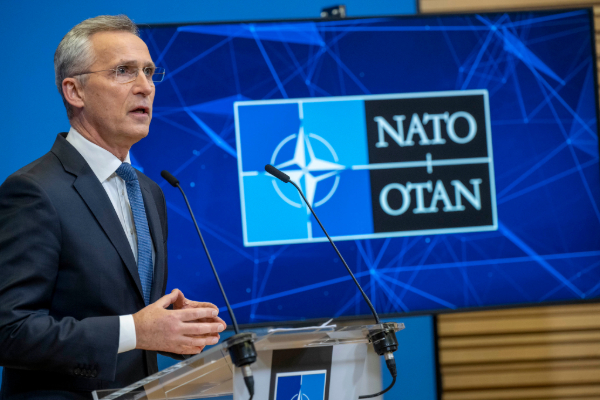North Atlantic Treaty Organisation (NATO) Secretary-General Jens Stoltenberg said that member states will discuss an accord to increase support to Ukraine in a more predictable way to send the message to Russia that it cannot win the war.
At the start of a NATO summit in Brussels, Stoltenberg told reporters that Ukraine needs more and new money from NATO over many years.
However, he declined to comment on a possible $100 billion aid fund for Ukraine specifically.
Earlier, Reuters had reported that Stoltenberg had floated the idea of the package over five years for Ukraine. Diplomats say the aim is to have an aid package ready before the NATO summit in July.
Under the plan, Nato will take over some of the coordination work from a US-led ad-hoc coalition known as the Ramstein group and finalise details of these proposals at a summit in Washington.
The development comes as the $60-billion US funding package has been blocked by Republicans in Congress. In his election campaign, former US President Donald Trump caused outrage among NATO members when he threatened to encourage Moscow to attack members who were not meeting their financial obligations.
Until now, NATO as an organisation has focused on non-lethal aid for Ukraine out of fears that a more direct role could trigger an escalation of tensions with Russia. Its members have provided billions of dollars in arms on a bilateral basis.
Diplomats said there was a growing view within NATO that it was time to put military aid to Ukraine on a more sustainable footing and NATO was best placed to do that.
The organisation has stated that Ukraine cannot join while it is at war with Russia but that it will become a member at some point.
“Ukraine will become a member of NATO. It is a question of when, not if,” Stoltenberg has said earlier.
With inputs from Reuters
















